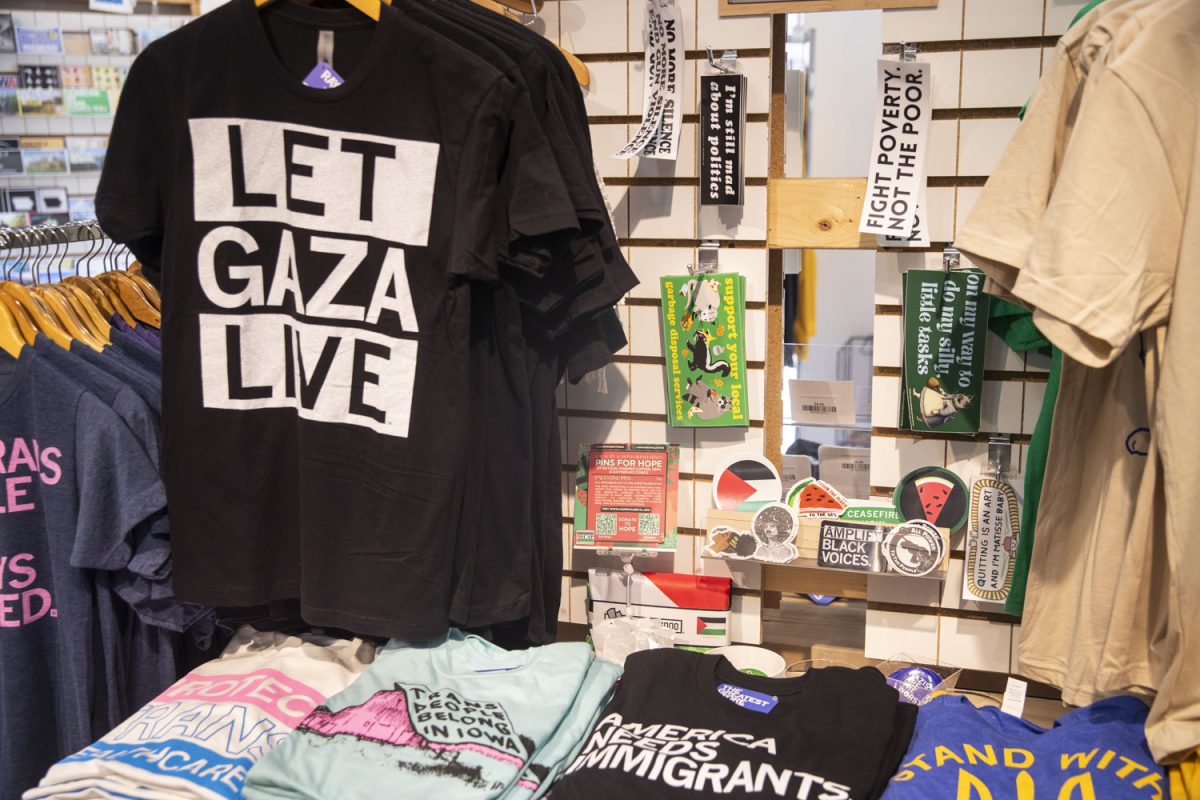Two months after Iowans celebrated the phased ceasefire deal between Israel and Hamas, Israel launched a series of aerial attacks that killed 409 people across Gaza and ended the ceasefire during its first phase.
The deadly attacks follow 17 months of war, during which at least 50,021 Palestinians have been killed and 113,274 wounded, according to Gaza’s Ministry of Health.
Palestinians have also face barriers to water, food, and health care due to blockades put in place by Israel, as well as a loss of stable shelter and housing as a result of 70 percent of all structures in Gaza being destroyed alongside 92 percent of all housing being destroyed.
Despite being separated by 6,000 miles, many Iowans are concerned about the well-being of Palestinians and the challenges that threaten their survival. The Humanitarian Operations and Public Education, or HOPE, Foundation was founded at the beginning of 2025 to provide food, water, health care, clothing, and essential items to the displaced people in Gaza.
HOPE is working with organizations and volunteers in Gaza to distribute these resources and alleviate some of the suffering Palestinians face.
“A lot of people are really concerned about the situation in Gaza: in Iowa City, in Eastern Iowa, in the Midwest, and in the U.S.,” Yaser Abu-Dagga, one of the co-founders and the treasurer of the HOPE Foundation, said. “There’s tremendous suffering in Gaza, and this goes against the core value of America: the right for people to live decent lives. People want to find a way to help, and that’s how we got together and tried to find ways to help.”
One of the ways the community has come together is through Pins for Hope.
At four locations across downtown — RAGUN, Kindred Coffee and Cafe, Heim, and Daydreams Comics — pins of the Palestinian flag are available for purchase, with all proceeds from the pins going to the HOPE Foundation to fund the organization’s humanitarian efforts.
One of these efforts includes building a primary care facility in Khan-Younis and vaccinating children against polio, which had an outbreak in the Gaza Strip after 25 years without an outbreak.
“It’s a lot of issues that are important to the community here, especially [Iowa City] having one of the biggest hospitals in the state. A lot of people are concerned about health issues,” Abu-Dagga said. “Also, water resources are important to the farmers, and they understand what it means to not have access to clean drinking water. There is a lot of connection and a lot of understanding of the suffering of Palestinians.”
Anna Kain, an employee at Heim, had just finished selling two pins to customers. The pins sat beside the register and a Pins for Hope flyer with a QR code to donate directly to the HOPE Foundation.
“We started selling them because we really care about Palestinian issues, and when [the HOPE Foundation] offered to have us help, they offered to help us help others, so we were like, ‘Yeah, that’s an easy thing,’” Kain said. “Honestly, they did all the work and were just happy to host the pins.”
As Kain explained, the Pins for Hope were selling well at Heim, with many donating more than the price of the pin to support Palestinians.
“They’re only $4. That’s really affordable,” Kain said. “Because of that, people donate more than they are asking for.”
Nathan Parriott, the current owner of Daydream Comics, said similarly, the pins were selling well at the comic book shop, alongside the many other pins the shop sells, as people came in, excited to support the project.
“It’s something that’s obviously important to the people in our community, and it’s important to me, and I’m just happy that I can work with something like that and provide what little I can to help,” Parriott said.
The Pins for Hope offer a tangible way for Iowans to support international issues and feel as though they’re making a difference. As Samuel Benson, a store manager at RAYGUN said, the Pins for Hope arrived at RAYGUN because of the assistant manager at the store, but Benson was more than happy to support and help Iowans make a difference.
“RAYGUN has always liked to help as much as they can with many kinds of missions, usually more local in Iowa and everything in the Midwest, but for international situations, we like to help out as much as we can as well,” Benson said. “It feels like you can’t do much, and you’re watching horror stories from beyond, so anything we can do to feel like we’re helping at all, we’re happy to do.”



